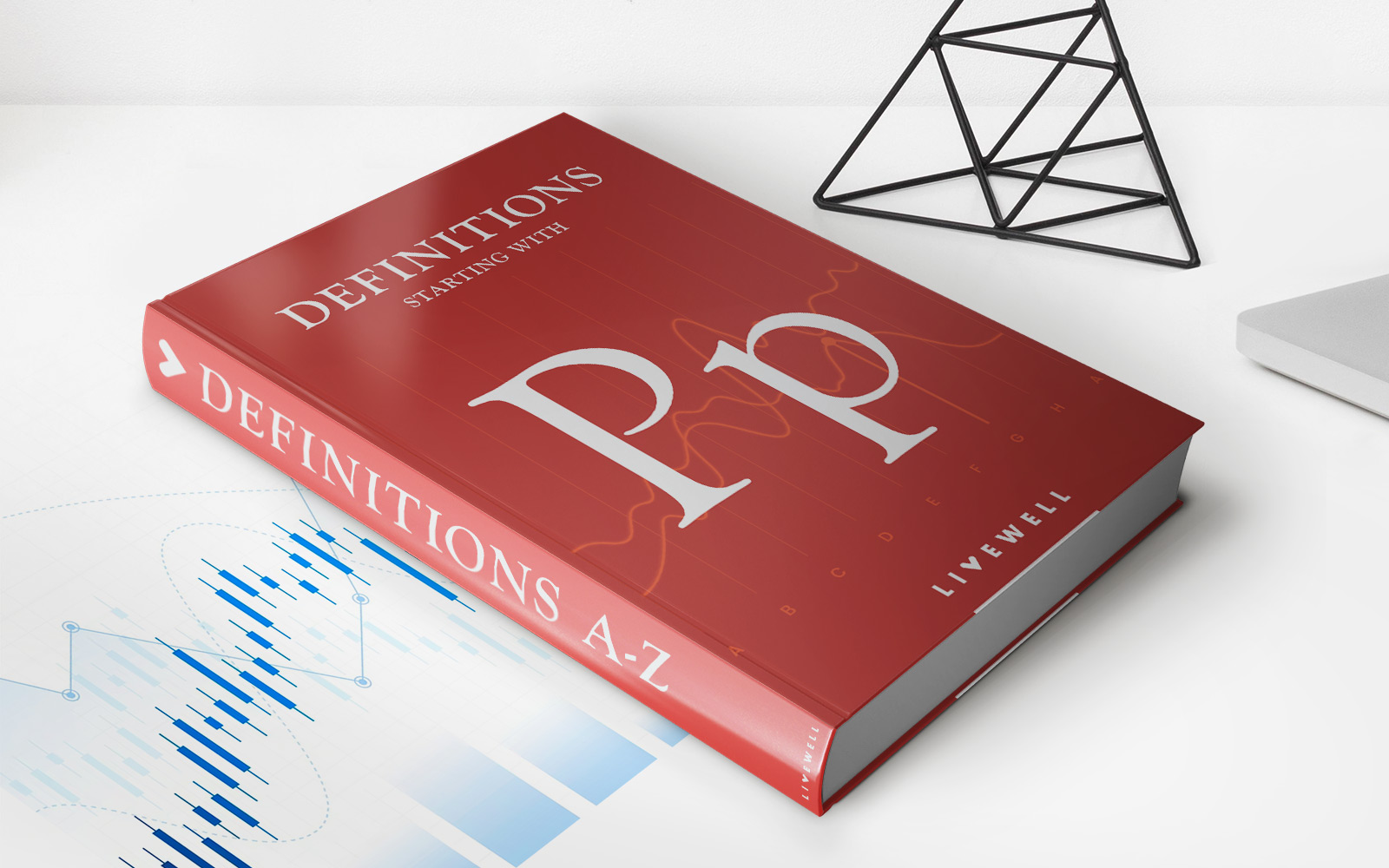

Finance
What Is A Dependent On Insurance?
Published: November 14, 2023
Learn what a dependent is in the context of insurance and how it impacts your finances. Understand the financial implications of having dependents and how it can affect your insurance coverage.
(Many of the links in this article redirect to a specific reviewed product. Your purchase of these products through affiliate links helps to generate commission for LiveWell, at no extra cost. Learn more)
Table of Contents
- Definition of a Dependent on Insurance
- Types of Dependents Recognized by Insurance
- Spouse as a Dependent
- Children as Dependents
- Adults with Disabilities as Dependents
- Other Qualifying Dependents on Insurance
- Criteria for Dependents on Insurance
- Adding a Dependent to Your Insurance Coverage
- Maintaining Dependent Coverage
- Dependent Coverage Limitations
Definition of a Dependent on Insurance
When it comes to insurance coverage, a dependent is a person who is eligible to receive benefits under an individual or group insurance policy. Dependents can include spouses, children, and in some cases, other family members or individuals with certain qualifying relationships. Dependents are typically covered for medical expenses, dental care, prescription medications, and other healthcare needs.
Insurance companies recognize dependents as individuals who rely on the policyholder for financial support and are included in the policyholder’s household. The specific definition and requirements for dependents can vary depending on the type of insurance policy, such as health insurance, life insurance, or disability insurance.
For health insurance purposes, dependents are generally categorized into three main groups: spouses, children, and adults with disabilities. Understanding the definition and eligibility criteria for dependents is essential for policyholders to determine who they can include in their insurance coverage and ensure that their loved ones have access to the necessary healthcare services.
It is worth noting that while insurance policies typically cover dependents, the level of coverage and the extent of benefits may vary. It is important for policyholders to review their insurance policies and understand the specific terms and conditions regarding dependent coverage.
Types of Dependents Recognized by Insurance
Insurance policies recognize different types of dependents depending on the specific coverage and the relationship to the policyholder. Here are the most common types of dependents recognized by insurance:
- Spouse: A spouse is a person who is legally married to the policyholder. Whether in a traditional marriage or a legally recognized domestic partnership, spouses are typically eligible for dependent coverage under insurance policies. It’s important to note that some insurance policies may require proof of marriage or domestic partnership for spousal coverage.
- Children: Children are another common category of dependents recognized by insurance. This includes biological children, stepchildren, adopted children, and sometimes even foster children. Insurance policies generally have age restrictions for dependent children, with coverage usually available until the child reaches a certain age (often 26 years old) or until they are no longer financially dependent on the policyholder.
- Adults with Disabilities: Some insurance policies extend dependent coverage to adult children with disabilities who are unable to support themselves financially. These individuals may need ongoing medical care, and insurance coverage allows them to access necessary treatments and services. The specific criteria for recognizing adults with disabilities as dependents can vary among insurance providers, so it’s important to review the policy terms.
- Other Qualifying Dependents: Depending on the insurance policy, there may be provisions for recognizing other types of qualified dependents. This can include parents, grandparents, siblings, or domestic partners. These individuals must meet certain requirements, such as being financially dependent on the policyholder, living in the same household, or having a legally recognized relationship.
It’s important to carefully review the terms and conditions of your insurance policy to determine which types of dependents are eligible for coverage. Different insurance providers may have specific guidelines and limitations when it comes to recognizing and providing benefits for different types of dependents. By understanding these distinctions, policyholders can ensure their loved ones receive the appropriate level of coverage and access to necessary healthcare services.
Spouse as a Dependent
Your spouse is one of the most common types of dependents recognized by insurance policies. Whether you’re legally married or in a domestic partnership, insurance coverage typically extends to your spouse. Including your spouse as a dependent on your insurance policy allows them to access the same benefits and healthcare services that you do.
To include your spouse as a dependent, you will usually need to provide proof of your marriage or domestic partnership. This may include submitting a marriage certificate, a domestic partnership agreement, or any other legal documentation that verifies your relationship. Insurance companies require this proof to ensure that only eligible individuals are covered under the policy.
Once your spouse is enrolled as a dependent, they will have access to a range of healthcare benefits. This can include coverage for doctor visits, hospital stays, prescription medications, preventive care, and other necessary medical services. The specifics of the coverage will depend on your insurance policy, so it’s crucial to review the terms and conditions to understand the extent of the benefits.
Keep in mind that insurance policies may have limitations on spousal coverage. For example, some policies may not cover spouses who have separate health insurance available to them through their own employer. In such cases, the spouse may need to rely on their own coverage, and you may need to coordinate benefits between the two policies.
If you experience any life changes, such as a divorce or the dissolution of a domestic partnership, it’s important to notify your insurance provider and update your policy accordingly. Changes in marital status can impact your dependent coverage and may require adjustments to your insurance plan.
Adding your spouse as a dependent on your insurance policy provides you both with peace of mind, knowing that healthcare expenses are covered in case of illness or injury. It allows your spouse to receive necessary medical care and ensures that you can support each other’s well-being.
Children as Dependents
Children are important dependents recognized by insurance policies, as they require access to healthcare services throughout their development. Insurance coverage for children typically extends to biological children, stepchildren, adopted children, and sometimes even foster children. Including your children as dependents on your insurance policy ensures they have access to the necessary medical care and treatments.
Insurance policies usually have age restrictions for dependent children. The coverage is often available until the child reaches a certain age, often 26 years old, or until they are no longer financially dependent on the policyholder. The age limit may vary depending on the insurance provider and the specific policy terms.
When adding children as dependents, insurance companies may require documentation confirming their relationship to the policyholder. This can include birth certificates, adoption papers, or other legal documents. The purpose of this documentation is to ensure that only eligible children are covered and to prevent fraud or misuse of insurance benefits.
Health insurance policies typically cover a range of services for children, including regular check-ups, immunizations, preventive care, and treatments for common childhood illnesses and injuries. Depending on the policy, coverage may extend to hospital stays, surgeries, prescription medications, and specialized care for conditions such as asthma, allergies, or chronic diseases.
It’s important to note that as children grow older, their healthcare needs may change. When children reach the age limit for dependent coverage, they may need to obtain their own health insurance. This can be through an employer-sponsored plan, purchasing individual coverage, or potentially qualifying for government programs such as Medicaid or the Children’s Health Insurance Program (CHIP).
Parents should regularly review their insurance policies to ensure their children’s coverage is up to date and appropriate for their needs. Life changes, such as marriage, divorce, or changes in custody, may require updates to the dependent coverage. It’s important to notify the insurance provider and make any necessary adjustments to the policy to ensure continuous coverage for your children.
Including children as dependents on your insurance policy provides financial security and peace of mind. It allows parents to prioritize their children’s health and well-being by ensuring they have access to comprehensive healthcare services when needed.
Adults with Disabilities as Dependents
Insurance policies may recognize adults with disabilities as dependents, providing them with necessary coverage for their healthcare needs. This category of dependents includes adult children who are unable to support themselves financially due to a disability. Insurance coverage for adults with disabilities ensures they have access to medical care, treatments, and services that address their specific needs.
The specific criteria for recognizing adults with disabilities as dependents can vary among insurance providers. Some policies may require proof of disability, such as documentation from a qualified medical professional or government agency. This documentation helps verify the individual’s condition and ensures that only eligible individuals receive coverage.
Insurance coverage for adults with disabilities typically includes a wide range of healthcare services. This can encompass doctor visits, hospitalizations, specialist consultations, prescription medications, therapies, rehabilitation, and assistive devices. The goal is to support individuals with disabilities in managing their health and improving their quality of life.
It’s important for policyholders to carefully review their insurance policy to understand the extent of coverage for adults with disabilities. This includes being aware of any limitations or restrictions, such as age limits for coverage or specific types of disabilities that may not be covered.
As with other dependents, it’s crucial to keep insurance providers updated on any changes or developments regarding an adult with disabilities. This includes changes in their condition, living arrangements, or eligibility for government assistance programs. These updates can help ensure continuous coverage and that the individual receives the necessary support and care.
Policyholders should also be aware of the potential financial implications of providing coverage for adults with disabilities. This includes understanding any additional costs associated with specialized treatments, therapies, or assistive devices that may not be fully covered by the insurance policy.
Including adults with disabilities as dependents on an insurance policy demonstrates a commitment to their well-being and access to healthcare services. It provides the necessary financial protection and support, allowing individuals with disabilities to lead fulfilling and healthy lives.
Other Qualifying Dependents on Insurance
While spouses and children are the most commonly recognized dependents on insurance policies, there are other types of dependents that may be eligible for coverage depending on the specific insurance policy and provider. Let’s take a closer look at some of the other qualifying dependents:
Parents and Grandparents: In certain cases, insurance policies may allow the inclusion of parents and grandparents as dependents. This can be particularly relevant for elderly individuals who rely on their children or grandchildren for financial support and live in the same household. However, it’s important to note that not all insurance policies extend coverage to parents and grandparents, so it’s advisable to carefully review the policy terms.
Siblings: In some situations, insurance policies may recognize siblings as dependents. This can apply when siblings live together, share financial responsibilities, and meet certain criteria set by the insurance provider. The specific requirements and eligibility criteria for sibling dependents may vary, so it’s important to consult the insurance policy or contact the insurance provider directly to determine if such coverage is available.
Domestic Partners: Insurance companies may offer dependent coverage for domestic partners. Domestic partnership typically refers to a committed relationship between two individuals who live together and share a domestic life, but are not legally married. Depending on the insurance policy, there may be specific documentation or qualification requirements to prove the domestic partnership and qualify for dependent coverage.
Other Qualified Individuals: Insurance policies may have provisions for recognizing other individuals as dependents based on specific qualifying criteria. This can include individuals who have a legal guardianship or custodial relationship, individuals who are financially dependent and live in the same household, or individuals with a legal obligation to provide support. The insurance policy will outline the criteria for recognizing these dependents.
It’s vital for policyholders to carefully review their insurance policies to understand the specific guidelines and requirements for adding and maintaining coverage for other qualifying dependents. Each insurance provider may have different criteria and limitations, so it’s necessary to consult the policy documentation or contact the insurance company directly for clarification.
By recognizing and providing dependent coverage for individuals beyond spouses and children, insurance policies can support a wider range of familial relationships and ensure that those who rely on the policyholder for financial and emotional support have access to necessary healthcare services.
Criteria for Dependents on Insurance
Insurance companies have specific criteria that must be met in order for an individual to be considered a dependent on an insurance policy. These criteria help determine who is eligible for coverage and ensure that only qualified individuals receive benefits. While the specific criteria may vary depending on the insurance provider and the type of policy, there are some common factors that are typically taken into consideration:
Relationship to the Policyholder: Insurance policies generally require a specific relationship to the policyholder for someone to be considered a dependent. This can include being a spouse, child, domestic partner, parent, grandparent, or sibling. The policy may also consider other legally recognized relationships or responsibilities, such as legal guardianship or custodial rights.
Financial Dependence: Dependents are typically individuals who rely on the policyholder for financial support. Insurance companies may require proof of financial dependence, such as evidence that the dependent receives financial assistance or lives in the same household as the policyholder. This criterion helps ensure that the coverage is providing assistance to those who truly need it.
Residency: The policy may require that the dependent resides in the same household as the policyholder. This helps establish a clear connection and ensures that the dependent is part of the policyholder’s immediate family. Some policies may have exceptions for dependents who are temporarily residing elsewhere, such as college students.
Age Limitations: Insurance policies often have age limits for dependents. This means that coverage may only be provided until a certain age, such as 26 years old, or until the dependent is no longer financially reliant on the policyholder. Age limits may vary depending on the type of insurance, so it’s important to review the specific policy terms.
Documentation: Many insurance providers require documentation to validate the relationship and eligibility of dependents. This can include birth certificates, marriage certificates, adoption papers, domestic partnership agreements, or other legal documents. This documentation helps prevent fraud and ensures that only eligible individuals are covered.
It’s important to carefully review the insurance policy to understand the specific criteria for dependents. Failure to meet the criteria may result in a dependent being ineligible for coverage. Additionally, it’s essential to update the insurance provider in the event of any changes in dependent status, such as divorce, marriage, or changes in custody.
Understanding the criteria for dependents on insurance allows policyholders to determine who can be included in their coverage and ensure that their loved ones have access to the necessary healthcare services. By adhering to these criteria, insurance companies can effectively manage their risk and provide support to those who meet the eligibility requirements.
Adding a Dependent to Your Insurance Coverage
If you have a qualifying dependent, whether it’s a spouse, child, or another eligible individual, you may have the option to add them to your insurance coverage. Adding a dependent ensures that they have access to the same benefits and healthcare services as you do. Here are the general steps to follow when adding a dependent to your insurance policy:
- Review Your Insurance Policy: Start by reviewing your insurance policy to understand the specific guidelines and requirements for adding dependents. Familiarize yourself with the eligibility criteria, documentation needed, and any potential limitations or restrictions.
- Gather the Required Documentation: Depending on the insurance provider, you may need to provide supporting documentation to prove your relationship to the dependent. This can include marriage certificates, birth certificates, adoption papers, or other legal documents. Make sure you have the necessary paperwork ready.
- Contact Your Insurance Provider: Reach out to your insurance provider to inform them of your intention to add a dependent. They will guide you through the process and provide you with the necessary forms or instructions. Be prepared to provide the required documentation during this step.
- Complete the Necessary Forms: Fill out the required forms accurately and provide all the requested information. Be sure to include the dependent’s full legal name, date of birth, and any other details required by your insurance provider. Double-check the forms before submitting them for accuracy.
- Submit the Forms and Documentation: Once you have completed the forms, submit them to your insurance provider along with any supporting documentation they require. Follow the instructions provided by your insurance company to ensure a smooth and efficient process.
- Confirm Dependent Coverage: After submitting the necessary forms and documentation, wait for confirmation from your insurance provider. They will inform you once the dependent’s coverage has been added to your policy. It is important to carefully review any changes or updates to your policy to ensure accuracy.
Keep in mind that the process for adding dependents may vary depending on your insurance provider and the type of policy you have. It’s always a good idea to consult your insurance company directly for specific instructions and guidance.
By adding a dependent to your insurance coverage, you are extending the benefits and protection to your loved ones. This allows them to receive necessary medical care and support in times of need. Ensure that you stay informed about any changes to the policy or updates to your dependent’s eligibility to maintain continuous and appropriate coverage.
Maintaining Dependent Coverage
Maintaining dependent coverage on your insurance policy is essential to ensure that your loved ones continue to have access to the necessary healthcare services. Here are some key considerations for maintaining dependent coverage:
Regularly Review Your Policy: Take the time to review your insurance policy on a regular basis. Familiarize yourself with the terms and conditions pertaining to dependent coverage. This allows you to stay informed about any changes or updates to the policy that may affect the eligibility or benefits for your dependents.
Notify Your Insurance Provider of Changes: It’s crucial to notify your insurance provider of any changes in dependent status. This includes changes in marital status, the birth or adoption of a child, or custody arrangements. Promptly informing your insurance provider ensures that the dependent’s coverage is accurate and up to date.
Keep Documentation Updated: If your insurance provider requires documentation to validate the relationship to your dependent, make sure to keep these documents updated. For example, marriage certificates or birth certificates may need to be kept current to avoid any issues with coverage. Provide updated documentation to your insurance provider as required.
Understand Coverage Limitations: Familiarize yourself with any limitations or restrictions on dependent coverage within your insurance policy. This can include age limits for children or specific criteria for recognizing other types of dependents. By understanding these limitations, you can take appropriate steps to ensure continuity of coverage for your dependents.
Coordinate Benefits: If both you and your spouse have separate insurance coverage through different employers, it’s essential to coordinate benefits. Understanding each policy’s coordination of benefits rules can help maximize coverage and minimize out-of-pocket expenses. This ensures that your dependents receive the full benefits they are entitled to.
Review Healthcare Needs: Regularly assess the healthcare needs of your dependents to ensure that their coverage aligns with those needs. Consider any changes in their medical conditions or treatments and evaluate if adjustments to your insurance coverage are necessary. This can help ensure that your dependents have adequate coverage for their specific health requirements.
Stay Informed About Policy Changes: Insurance policies are subject to changes and updates. Stay informed about any policy changes communicated by your insurance provider. This can include changes in premiums, coverage benefits, or requirements for dependent coverage. Staying informed allows you to make any necessary adjustments to your coverage to maintain optimal protection for your dependents.
Maintaining dependent coverage requires ongoing communication with your insurance provider and staying attentive to any changes that may affect eligibility or benefits. By proactively managing dependent coverage, you can ensure that your loved ones have continuous access to the healthcare services they need.
Dependent Coverage Limitations
While dependent coverage provides important benefits for your loved ones, it’s essential to understand that there may be limitations to the coverage offered by insurance policies. These limitations can impact the eligibility, duration, and extent of coverage for dependents. Here are some common dependent coverage limitations to be aware of:
Age Limits: Many insurance policies impose age limits for dependent coverage. This means that dependents may only be covered up to a certain age, typically 26 years old. After reaching the age limit, dependents may need to find their own insurance coverage through an employer, individual purchase, or government programs like Medicaid or CHIP.
Gradual Erosion of Coverage: As dependents approach the age limit for coverage, some policies may gradually reduce their benefits. This can include limitations on certain treatments or the requirement for additional documentation to prove continued financial dependence. It’s important to review your policy to understand how the coverage may change as your dependents near the age limit.
Marital Status of Dependents: Some insurance policies may require dependent spouses to obtain coverage through their own employer if it is available to them. This means that if a dependent spouse has access to health insurance through their job, they may be required to enroll in that plan rather than remaining on the policyholder’s insurance. It’s important to understand the specific policy terms regarding spousal coverage.
Limitations on Non-Traditional Dependents: Insurance policies may have specific guidelines regarding the eligibility of non-traditional dependents, such as domestic partners or individuals with legal guardianship. These dependents may have additional requirements or limitations in order to qualify for coverage. It’s important to review the policy terms to understand the specific criteria for these types of dependents.
Out-of-Network Limitations: Insurance policies often have limitations on out-of-network coverage. This means that if a dependent seeks care from a healthcare provider who is not within the insurance network, their coverage may be limited or they may have to pay higher out-of-pocket costs. Understanding the network restrictions helps ensure that dependents receive care from providers covered by the insurance policy.
Pre-Existing Condition Limitations: Depending on the insurance policy, there may be limitations on coverage for pre-existing conditions. This means that certain medical conditions that exist before the dependent is added to the policy may have limited or excluded coverage for a certain period of time. It’s important to review the policy terms regarding pre-existing conditions to understand any limitations that may apply.
It’s crucial to carefully review your insurance policy and understand the limitations regarding dependent coverage. By understanding these limitations, you can make informed decisions about your dependents’ healthcare needs and ensure that they have appropriate coverage. If you have any questions or concerns about the limitations, it’s recommended to reach out to your insurance provider for clarification.














